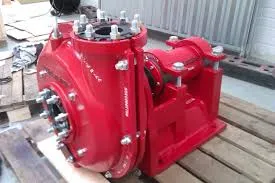English
- Afrikaans
- Albanian
- Amharic
- Arabic
- Armenian
- Azerbaijani
- Basque
- Belarusian
- Bengali
- Bosnian
- Bulgarian
- Catalan
- Cebuano
- Corsican
- Croatian
- Czech
- Danish
- Dutch
- English
- Esperanto
- Estonian
- Finnish
- French
- Frisian
- Galician
- Georgian
- German
- Greek
- Gujarati
- Haitian Creole
- hausa
- hawaiian
- Hebrew
- Hindi
- Miao
- Hungarian
- Icelandic
- igbo
- Indonesian
- irish
- Italian
- Japanese
- Javanese
- Kannada
- kazakh
- Khmer
- Rwandese
- Korean
- Kurdish
- Kyrgyz
- Lao
- Latin
- Latvian
- Lithuanian
- Luxembourgish
- Macedonian
- Malgashi
- Malay
- Malayalam
- Maltese
- Maori
- Marathi
- Mongolian
- Myanmar
- Nepali
- Norwegian
- Norwegian
- Occitan
- Pashto
- Persian
- Polish
- Portuguese
- Punjabi
- Romanian
- Russian
- Samoan
- Scottish Gaelic
- Serbian
- Sesotho
- Shona
- Sindhi
- Sinhala
- Slovak
- Slovenian
- Somali
- Spanish
- Sundanese
- Swahili
- Swedish
- Tagalog
- Tajik
- Tamil
- Tatar
- Telugu
- Thai
- Turkish
- Turkmen
- Ukrainian
- Urdu
- Uighur
- Uzbek
- Vietnamese
- Welsh
- Bantu
- Yiddish
- Yoruba
- Zulu
Telephone: +86 13120555503
Email: frank@cypump.com
Jul . 28, 2024 23:51 Back to list
Choosing the Right Residential Sewage Pumps for Efficient Wastewater Management and Home Drainage Solutions
Understanding Residential Sewage Pumps Importance and Functionality
In residential settings, proper management of wastewater is crucial for maintaining hygiene and environmental standards. One key component in this process is the sewage pump, which plays a vital role in transporting waste from homes to the main sewage line or septic system. This article explores the importance, functionality, and considerations for choosing the right residential sewage pump.
The Importance of Sewage Pumps
Sewage pumps are essential for homes that are situated below the level of the municipal sewer system or where gravity drainage is not feasible. In such cases, wastewater must be pumped upward to ensure it reaches the sewage treatment facility efficiently. This technology is not only vital for the hygiene of the household but also for the protection of the surrounding environment. It prevents sewage backups, which can lead to unsanitary conditions and potential health hazards.
How Sewage Pumps Work
Sewage pumps, often referred to as effluent pumps, operate on a straightforward principle. They use a motor to drive an impeller that moves the wastewater through pipes. The pumps are typically submerged in a sump pit or basin, where they collect the incoming sewage. When the water level rises to a certain point, a float switch activates the pump, pushing the waste through the discharge pipe and out to the sewer line or septic system.
There are two main types of sewage pumps submersible pumps and effluent pumps. Submersible pumps are designed to be fully submerged in the sewage, while effluent pumps are used for lighter wastewater that has undergone initial treatment. Each type has specific applications based on the composition of the waste and the requirements of the sewage system.
Key Features to Consider
When selecting a sewage pump for residential use, there are several critical factors to consider
residential sewage pumps

1. Horsepower (HP) The power of the pump will determine its capability to handle different volumes and types of sewage. Homeowners should assess their needs based on the size of their household and the complexity of their plumbing system.
2. Pump Type Depending on the type of sewage encountered, homeowners may choose between submersible, effluent, or grinder pumps. Grinder pumps are specifically designed to handle solid waste, making them ideal for homes that produce a lot of solid materials.
3. Durability and Material Wastewater can be corrosive and abrasive; thus, the materials used in the pump construction matter. Cast iron and stainless steel are popular choices for their durability and resistance to damage.
4. Size and Capacity The pump must fit the space available and have a sufficient capacity to handle the expected load without overworking itself.
5. Switch Type Pumps come equipped with different types of float switches. A vertical float switch can be beneficial in tight spaces, while tethered floats are often more effective in larger sumps.
Maintenance and Care
To ensure the longevity and efficiency of a residential sewage pump, regular maintenance is imperative. Homeowners should periodically check the pump for any signs of wear and tear, clean the sump pit, and remove any obstructions from the inlet and outlet pipes. It’s also advisable to have a professional inspection at least once a year to identify any potential issues before they escalate.
Conclusion
In conclusion, residential sewage pumps are an integral component of modern sanitation systems. Understanding their functionality, the range of options available, and the importance of proper maintenance allows homeowners to make informed decisions. By investing in a reliable sewage pump and following best practices for upkeep, households can ensure that their wastewater management system operates smoothly, safeguarding both public health and the environment.
-
ISG Series Pipeline Pump - Chi Yuan Pumps | High Efficiency, Durable Design
NewsAug.01,2025
-
Advanced Flue Gas Desulfurization Pump with GPT-4 Turbo | Durable & Efficient
NewsJul.31,2025
-
ISG Series Vertical Pipeline Pump - Chi Yuan Pumps | Advanced Hydraulic Design&Durable Construction
NewsJul.31,2025
-
ISG Series Vertical Pipeline Pump - Chi Yuan Pumps | Energy Efficient & Low Noise
NewsJul.31,2025
-
pipeline pump - Chi Yuan Pumps Co., LTD.|High Efficiency&Low Noise
NewsJul.31,2025
-
ISG Series Vertical Pipeline Pump - Chi Yuan Pumps Co., LTD.|High Efficiency, Energy Saving, Low Noise
NewsJul.30,2025










